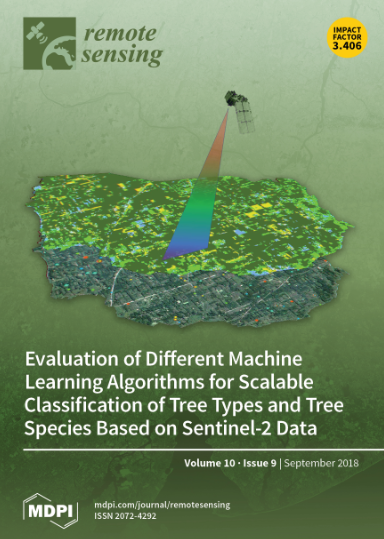Development and Comparison of InSAR-Based Land Subsidence Prediction Models
IF 4.2
2区 地球科学
Q2 ENVIRONMENTAL SCIENCES
引用次数: 0
Abstract
Land subsidence caused by human engineering activities is a serious problem worldwide. We selected Qian’an County as the study area to explore the evolution of land subsidence and predict its deformation trend. This study utilized synthetic aperture radar interferometry (InSAR) technology to process 64 Sentinel-1 data covering the area, and high-precision and high-resolution surface deformation data from January 2017 to December 2021 were obtained to analyze the deformation characteristics and evolution of land subsidence. Then, land subsidence was predicted using the intelligence neural network theory, machine learning methods, time-series prediction models, dynamic data processing techniques, and engineering geology of ground subsidence. This study developed three time-series prediction models: a support vector regression (SVR), a Holt Exponential Smoothing (Holt) model, and multi-layer perceptron (MLP) models. A time-series prediction analysis was conducted using the surface deformation data of the subsidence funnel area of Zhouzi Village, Qian’an County. In addition, the advantages and disadvantages of the three models were compared and analyzed. The results show that the three developed time-series data prediction models can effectively capture the time-series-related characteristics of surface deformation in the study area. The SVR and Holt models are suitable for analyzing fewer external interference factors and shorter periods, while the MLP model has high accuracy and universality, making it suitable for predicting both short-term and long-term surface deformation. Ultimately, our results are valuable for further research on land subsidence prediction.基于 InSAR 的地面沉降预测模型的开发与比较
人类工程活动引起的土地沉降是世界性的严重问题。我们选择乾安县作为研究区域,探索土地沉降的演变过程并预测其变形趋势。本研究利用合成孔径雷达干涉测量(InSAR)技术处理了覆盖该区域的64个哨兵-1数据,获得了2017年1月至2021年12月的高精度、高分辨率地表形变数据,分析了地表形变特征和土地沉陷演化过程。然后,利用智能神经网络理论、机器学习方法、时间序列预测模型、动态数据处理技术和地面沉降工程地质等方法对地面沉降进行预测。本研究开发了三种时间序列预测模型:支持向量回归(SVR)模型、霍尔特指数平滑(Holt)模型和多层感知器(MLP)模型。利用乾安县周子村沉陷漏斗区的地表变形数据进行了时间序列预测分析。此外,还比较分析了三种模型的优缺点。结果表明,所建立的三种时间序列数据预测模型都能有效捕捉研究区域地表变形的时间序列相关特征。SVR 模型和 Holt 模型适用于分析较少的外部干扰因素和较短的周期,而 MLP 模型具有较高的准确性和普遍性,使其既适用于预测短期地表变形,也适用于预测长期地表变形。最终,我们的研究结果对进一步开展地面沉降预测研究具有重要价值。
本文章由计算机程序翻译,如有差异,请以英文原文为准。
求助全文
约1分钟内获得全文
求助全文
来源期刊

Remote Sensing
REMOTE SENSING-
CiteScore
8.30
自引率
24.00%
发文量
5435
审稿时长
20.66 days
期刊介绍:
Remote Sensing (ISSN 2072-4292) publishes regular research papers, reviews, letters and communications covering all aspects of the remote sensing process, from instrument design and signal processing to the retrieval of geophysical parameters and their application in geosciences. Our aim is to encourage scientists to publish experimental, theoretical and computational results in as much detail as possible so that results can be easily reproduced. There is no restriction on the length of the papers. The full experimental details must be provided so that the results can be reproduced.
 求助内容:
求助内容: 应助结果提醒方式:
应助结果提醒方式:


